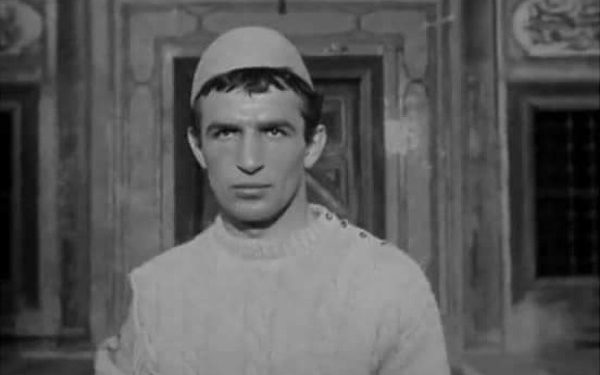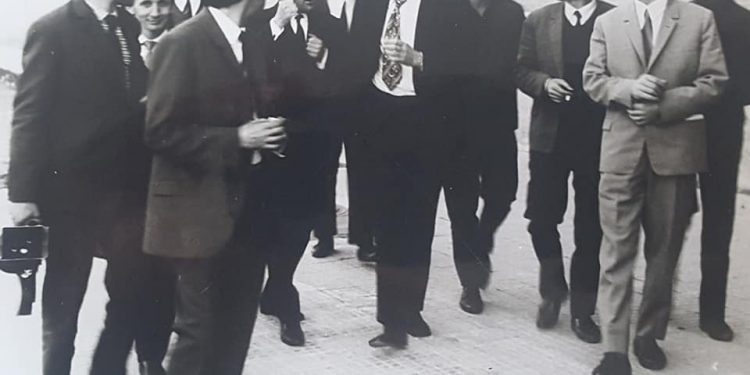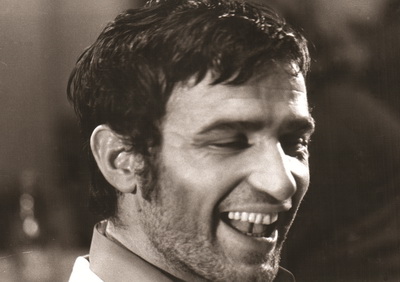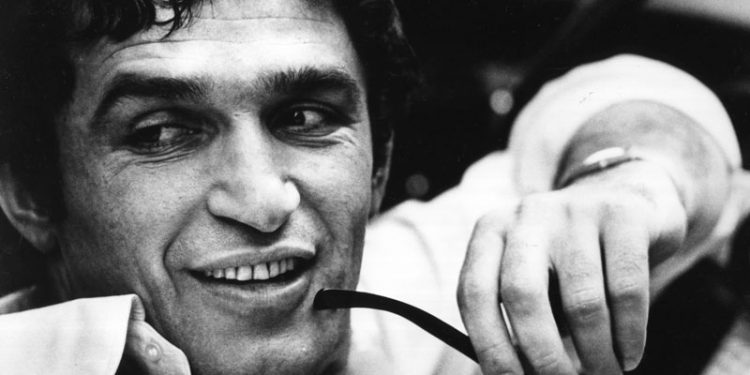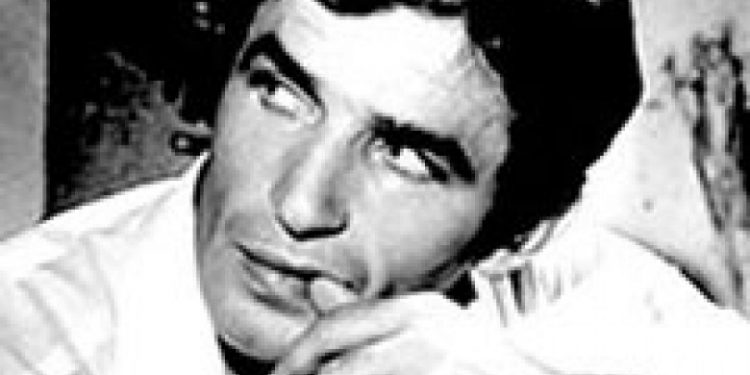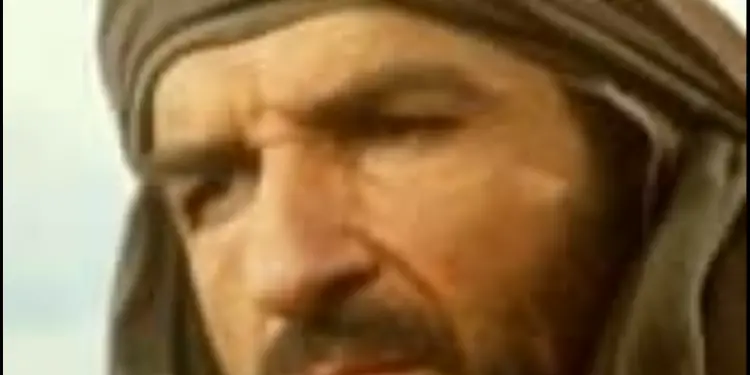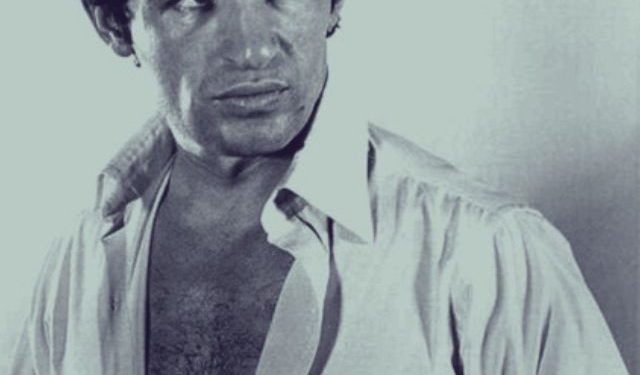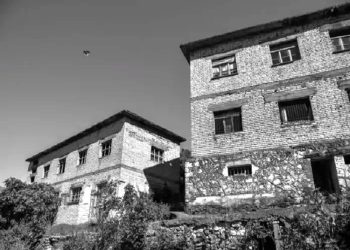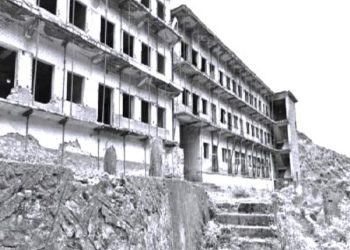Dashnor Kaloçi
Memorie.al publishes the secret report of the State Security realized through the Directorate of Intelligence at the Ministry of Foreign Affairs, (5th Directorate) which is dated May 15, 1972, where intelligence agents, surveyed, intercepted and recorded (with operative technique) all the conversations of the famous Albanian actor from Kosovo, Bekim Fehmiu, during the three-week period that he stayed in Albania. What did the famous actor say about Kosovo, Yugoslavia, Tirana, Pristina, Josif Broz Tito and Enver Hoxha and other conversations he had with art and culture personalities during meetings with them…
In the first part of this article published in yesterday’s issue, regarding the visit of the famous actor Bekim Fehmiu to Albania in 1972, we were introduced to the short report of the Culture Sector of the Central Committee of the ALP written by J Mato and F. Hobdari, as well as a part of the State Security report, realized by the V Directorate of the Ministry of Foreign Affairs (Directorate of Foreign Intelligence) where in some typed pages, a summary of his thoughts is given and the conversations he had with all those he met during the nearly three-week period he stayed in Albania. In the second part, we will get acquainted with the continuation of the State Security report and an excerpt from the memoir of Bekim Fehmiu entitled “Splendor and horror” published in Belgrade in 2002 and translated into Albanian by career diplomat Xhelal Fejza.
follows from the previous number
State Security Report for Bekim Fehmiu
- As for the attitude of Serbs towards Kosovo, he had a great hatred for all the treatment of Kosovars, the imprisonment of his father, etc., by Serbophiles. Bekim Fehmiu showed many cases of various forms of provocations and mass killings of entire Kosovar families by Serbs.
“The people of the government, he said, announced that those who want to return to Albania, let them register. There were many patriotic and at the same time naive people who fell into this trap. “Registered families take them separately by truck and they disappear.”
It must be acknowledged that he harbors the illusion of Tito and his recent reforms by attributing to him every evil or mistake concerning Kosovo, Rankovic and his followers. According to him, there was no knowledge and the IV Plenum regulated matters to some extent. From the impressions of these days, to some extent it may be thought that if he has a better information, he is inclined to understand ideological contradictions correctly. In various conversations in very close circles of people, they used as argument only the facts he was telling, Blessing said; of course, all these things could not have been done without his hand (Tito) ajo it is known that “the fish stinks from the head”.
- Bekim Fehmiu thought that our Ensemble should definitely go to Yugoslavia and give performances everywhere, that it is a wonderful ensemble. He was aware of the cultural agreements between our country and Yugoslavia. (apparently this was told to him at the Yugoslav embassy, where he went twice during his stay here).
On the issue of the agreement, he was of the opinion that, despite the fact that the Yugoslav side did not agree to emphasize the issue of Kosovo in the agreement, it would be good to have it signed and then find clever ways to help Kosovo. (he expressed this opinion in conversations with friends J. Mato. K. Obdari. E. Oktrova, and T. Bozo).
- Wishing for the good name of Albania all over the world, he thinks that we should bring our films and art to Europe. He said: “Europe will know about Albania, so you have to play boldly with your films. The opinion that your films are good is not only mine, but also that of other colleagues “……” I was imposed by the simplicity of the topics and their treatment “… “Movies should have more rite and dynamism”…. “I think movies should move away from posterity and agitation as much as possible, to be as vital and emotional as possible.”
He rejoiced when he saw in our museums that reflected the war and the history of Kosovo, but he thought: he was overjoyed. ” On the other hand, he appreciated our care to protect Kosovo and Kosovars, care not to give rise to outbursts of feelings and persecution by Serbian chauvinists
He expressed some doubts about the support and freedom given to Kosovo, because he said: “Serbs have always been cunning.”
- Bekim Fehmiu thinks that for the sake of Kosovar theater and art, it would be necessary for 4-5 Kosovar students to come to study at the Institute of Arts. This would equip them with a true work culture and discipline.
- During the visit to Kruja, he was generally very satisfied, but there were remarks about the new constructions which are completely contrary to the style of construction of this museum city. In particular, there were remarks about the architecture of the Skanderbeg Museum that has been erected in the castle.
- Traveling through Albania made a bad impression on him, and this was honestly expressed by the fact that mainly women and only a few men worked in the fields.
- He was eager to see as many national flags fluttering in each city. In particular, he said: flags should be waved in Kruja Castle, Gjirokastra, Tirana, etc. Therefore, when he went to Vlora decorated with flags of many nationalities on the occasion of the holiday, he was extremely pleased. “… Now my eyes and heart are getting full and I am feeling right in Albania”.
- In every conversation he was willing to play on our screen and in movies, but he did not give answers to concrete deeds. This is probably because he does not know our literature after the liberation. When he left you were given some books such as “The General of the Dead Army”, “Standing Again”, “The Castle”, etc. From the conversation it turns out that his dream was to play in the film, the role of Skanderbeg.
- He said that his mother and sister asked to come to Albania, but he expressed concern whether he would get a visa soon or not. “After” my mother is old “-he said- and she does not want to die without seeing mother Albania once”.
- Bekim Fehmiu expressed the desire to work voluntarily one day in action with concentrated strokes (and stressed; all day).
- In the conversation he had with the theater staff after watching the rehearsals of the drama “The General of the Dead Army”, last night before departure he said: “… My heart becomes a mountain that I am among you”, then after making some professional remarks and showed the desire to play with our actors, concluded: “In this my little heart, I will try to involve everyone.”
Tirana, May 15, 1972
5th Directorate of the Ministry of Foreign Affairs
………………………………………………………………………………………………
Excerpts from the memoir “Splendor and Horror” published in October 2012 in Belgrade and translated by Xhelal Fejza
Bekim Fehmiu: Confessions in the first person
Albanian Film Week. Guest … “Albanian Film Week” was held for the first time in Belgrade at the Youth House. I could barely see the end of the projection of one of the films. I meet Abdurrahman Shala, the new director Besim Sahatçiu … I was introduced to two young directors from Albania, Piro Milkani and Dhimitër Anagnosti. – Would you have come to us as a guest? – Dhimitri asks me, the short man with black features, who had studied camera and directing in Leningrad and Moscow. – With great pleasure, if you invite me! Atelie 212. I am sitting in the cupboard with colleagues. Enter Borislav Mihajlovic-Mihizi, one of the country’s greatest intellectuals. “I heard that you are going to Albania. A great writer lives there. His name is Ismail Kadare. He has written a wonderful novel, ‘The General of the Dead Army’. See if you can bring me.” The invitation came for me to be a guest of “Kinostudios”. Gloomy day. I traveled with that JAT car. From the plane you can see the urban plan of Tirana designed in such a way that it can follow the order of the words “Duce” (so called Mussolini). Aerodrome? Typical of a small and poor country. For the first time in Tirana. The procedure with the strict border guards and the customs officers, who look like the airport, went without difficulty, because Dhimitër Anagnosti and Pirro Milkani and the director of “Kinostudios” were waiting for me. – Do you speak Albanian? Do you know someone in Albania you would like to meet? They helped me to pack my suitcase in the trunk of a Lada. During the trip to Tirana, the director asks me again. – Do you have any wishes that we could fulfill while you are in Albania? – I have two. First, to convey the most cordial greetings from my mother, Bajram Curri’s wife, Dervishe Hanemi. Second, to see my first love. They stepped. – Do you have a first love in Albania? What is it called? Where is he from? – From Shkodra. Her name is Bukuroshe Tahiri. He has a brother named Riza and a sister named Safete. – Good! Will see! I was accommodated in the hotel “Dajti” in the city center. I liked the silence, without that traffic noise, just some bike. Tirana looks beautiful. Wide boulevards, with many flowers, with trees on the side … The monument of Gjergj Kastriot dominates the whole center. The hosts had organized the screening of the film “Odyssey”. The cinema hall filled to the brim with selected guests. Applause and anticipation are like waiting for a man. With pride, with joy, with warmth. Official visits began. In the Writers’ League, along with others, I meet Ismail Kadare, Dritëro Agolli … Ismail Kadare, a typical intellectual, with glasses with a metal frame, comes out and says to me: – I would like to give you my novel “General i dead army “, but I only have the French version. – I would be very pleased – He gave me his bestseller with dedication. I visited the Academy of Arts. “Kinostudio”. Simple conversations. Questions, professional. Their curiosity is felt, the desire to know as much as possible. Questions are asked by the selected. Outside on the street, a boy with an athletic body, big black eyes and thick black hair addresses me: “Can you give me an autograph? I am a third-year student of the Theater Academy. My name is Timo Flloko “I have a sister in Yugoslavia. My people are from Peja …” Those who accompanied me signaled me to hurry. – You will be the Albanian Omar Sharifi! – I say to the boy when we parted.
Durres
Durres. Theater. At the entrance, the bust of Alexander Moses. I participate for the first time in a concert with song and dance. Magnificent, educated voices. The beauty of those slow dances in terms of rhythm, but dignified and, immediately afterwards very lively. Dancers dressed in colorful folk costumes. I am excited, almost out of breath and I am very proud that I am being given the opportunity to see this beauty. It took me a while to get to know the members of the Ensemble. I congratulate and thank them for making me experience this unforgettable feeling. I did not know that in Durrës there was an amphitheater, even bigger than that of the Roman Colosseum. Only a third has been discovered. The companions met me with the amateur archaeologist. She trembles with emotion, showing me a thin gold pendant, which was hung in the figure in the shape of a tobacco leaf. It trembles every time you touch it. What a treasure! True cultural, spiritual treasure. At the suggestion of those who accompanied me, he reluctantly donated to me a copy of Aphrodite of the IV-V century p.e.s.
Kruje
Birthplace of Gjergj Kastriot Skënderbeu. What is this genius who managed for a quarter of a century to stop the unstoppable power of the Ottoman Empire and not allow its penetration to the West? Skanderbeg Castle, which dominates the entire hill of the city, has been reconstructed from some parts of it in the 14th century. – Why does Skanderbeg’s helmet have a goat’s head? – I ask the museum guide. – During a battle Skanderbeg tied pine torches to the goats’ horns, which he then dropped in front of his army. The Turks were frightened “by this great army that was coming towards them” and withdrew. In remembrance of this battle he adorned his helmet with the head of a horned goat. As soon as we enter the castle, I ask, “Why did you build an aluminum and glass museum in an environment surrounded by centuries-old stones? You brought America into the castle.
At Shkoder
Shkodra. The city from which I have some vivid memories, I did not know at all. The hotel? A one-story building, a beautiful house with loggia, courtyard and garden. It reminded me of Shaip Pasha’s house in Prizren. He took me to an old lady, the widow of Bajram Curri, who was waiting for me. Her house filled with invited cousins and friends. Dervishe Hanemi, loving and warm, was sitting in the minder. On the wall, above her head, the picture of her husband. I approached him and kissed his hand. – Hedija, wife of Ibrahim Fehmiu, together with her children we send you their heartfelt greetings and they begged me to hug you. Her face shone like a saint. Her hug, soft and fragrant, just like old. She lowered me close to her, holding my hand between her hands. Who are you? – told me. The youngest, Blessing, I told him. He asked me about Knowledge and everyone else by name. She was seized by the memories of her husband, of my father, and especially of Knowledge and those stormy times. The faces of those present as flushed. When we parted, we took a souvenir photo. New day. We went for a walk through Shkodra. Shkodra is clean like all cities. People were approaching us while walking. The crowd that accompanied us was getting bigger and bigger … – What happened to my first love, Bukuroshen? – Unfortunately, we could not find him. There is no family in Shkodra with the surname Tahiri. As I walked, I noticed two perfect circles: one with a larger perimeter and the other smaller inside it.
May Day Parade
My friends tell me that I should be present in the tribune where Enver Hoxha will also be. I am asked if I accept, given that I may have problems in the place where I live. May 1, 1972. In the tribune in front of the “Dajti” hotel, here I am in the front row, surrounded by hundreds of Chinese dressed in dock clothes and glued to the throat. On my left, about twenty meters, Enver Hoxha greets those who pass by. The army also paraded in khaki uniforms and “armed” with automatic weapons. Their military stance, the lines, I did not like. On the contrary. I could not see Enver Hoxha’s face. Last day. As we walk down the boulevard, my friends talk to me about the conflict and separation with Khrushchev and the USSR, because of which they almost died of starvation. They had been forced to buy gold wheat in Canada. – Did you see Comrade Enver? Here it is. Only two companions. I looked at him. An old gentleman, dressed in a beige suit. Without a tie, borselino on his head, hands behind his back, he walks slowly along the empty boulevard. – Why is there no special insurance? – Jooo! It is not necessary. There is no risk. People love it. Comrade Enver lives here. They showed me a cottage surrounded by greenery and flowers. We also moved into two private apartments. In the first apartment, simply furnished, Dhimitër Anagnosti introduces me to his wife, a lovely artist. Our family friend, Ramadan Sokoli, whom I did not know, an extraordinary intellectual who was not very fond of the regime, gave me tape recorders with recordings of Alexander Moses’ monologues. What a gift! /Memorie.al




